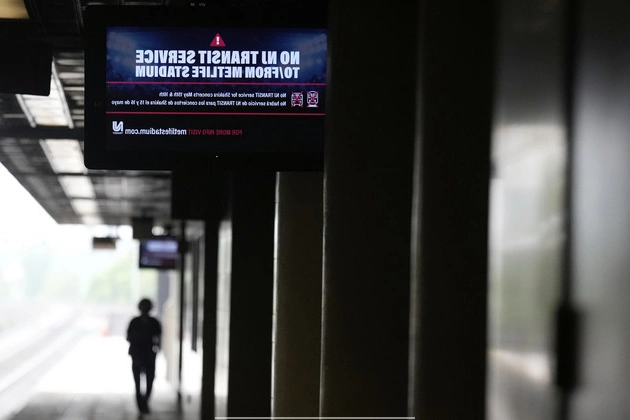
The recent strike at the nation’s third-largest commuter railroad has significantly disrupted the daily commutes of countless individuals working in and around New York City. This labor shutdown, the first at NJ Transit since 1983, stems from prolonged negotiations between Gov. Phil Murphy’s administration and the Brotherhood of Locomotive Engineers and Trainmen.
Despite efforts to reach a consensus on wages, both parties failed to find common ground, leading to the union’s decision to strike. Governor Murphy emphasized the importance of a fair deal that balances employee welfare with financial sustainability for NJ Transit and its stakeholders.
Challenges and Negotiations
NJ Transit CEO Kris Kolluri expressed concerns about the financial implications of meeting the union’s demands, highlighting the broader impact on the agency’s fiscal health. The deadlock in negotiations has raised tensions, with the union insisting on fair compensation for its members.
As the strike deadline approached, the National Mediation Board intervened to facilitate discussions between the conflicting parties. Despite optimism for a resolution, the strike commenced at 12:01 a.m. on Friday.
Union Demands and Agency Response
BLET National President Mark Wallace justified the strike as a response to what the union perceives as financial mismanagement by NJ Transit. The union’s stance underscores the disparity in resource allocation, citing lavish expenditures on infrastructure projects while neglecting frontline employees.
While NJ Transit defends its position as a steward of public funds, critics question the long-term implications of failing to address employee grievances. The strike symbolizes a broader challenge to Governor Murphy’s commitment to revitalizing NJ Transit and enhancing commuter experiences.
The administration’s emphasis on fiscal responsibility and operational improvements contrasts with the union’s push for equitable compensation and work conditions. The standoff reflects deeper systemic issues within the transit agency that transcend the immediate labor dispute.
Resolution Prospects and Commuter Impact
Amid escalating tensions, stakeholders are keenly observing the developments in negotiations and the potential for a resolution. The strike’s repercussions extend beyond immediate disruptions to commuters, posing a test for NJ Transit’s operational resilience and stakeholder relationships.
As the transit agency navigates this critical juncture, the focus remains on finding a sustainable agreement that addresses the core concerns of both parties. The resolution of this labor dispute will shape the future trajectory of NJ Transit and its commitment to serving the public effectively.











